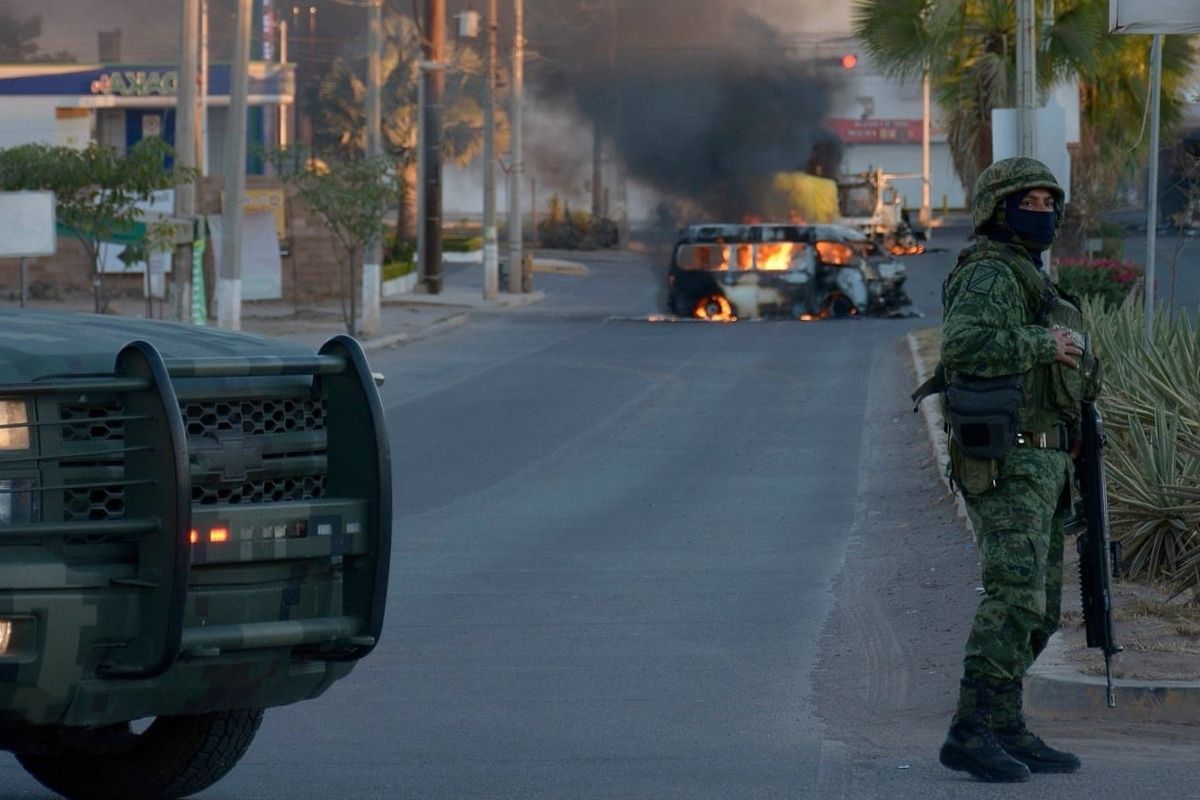
Why is the Sinaloa Cartel–Gulf Cartel Conflict significant? This brutal clash between two of Mexico's most powerful drug cartels has reshaped the landscape of organized crime. The Sinaloa Cartel, led by infamous figures like Joaquín "El Chapo" Guzmán, and the Gulf Cartel, with its own notorious leaders, have fought for control over lucrative drug trafficking routes. This conflict has resulted in countless casualties, widespread corruption, and a surge in violence across Mexico. Understanding this war helps shed light on the complexities of the drug trade, the impact on communities, and the ongoing efforts to combat these criminal organizations.
Key Takeaways:
- The Sinaloa Cartel–Gulf Cartel conflict began in the early 2000s, rooted in the history of Mexico's drug trade. It has led to devastating effects on Mexican society and drawn international attention and intervention.
- Notorious figures like "El Chapo" Guzmán and Osiel Cárdenas Guillén have shaped the violent struggle between the cartels. Major incidents and battles have escalated the tension, impacting communities and economies in Mexico.
Origins of the Conflict
The Sinaloa Cartel–Gulf Cartel conflict has deep roots in Mexico's drug trade history. Understanding its beginnings helps explain the ongoing violence.
- The Sinaloa Cartel was founded in the late 1980s by Joaquín "El Chapo" Guzmán.
- The Gulf Cartel dates back to the 1930s, initially involved in bootlegging alcohol.
- The conflict began in the early 2000s when the Gulf Cartel's armed wing, Los Zetas, split off.
- Los Zetas became a powerful force, challenging the Sinaloa Cartel's dominance.
- The Mexican government’s crackdown on drug trafficking intensified the rivalry.
Key Figures in the Conflict
Several notorious individuals have played significant roles in this violent struggle. Their actions have shaped the course of the conflict.
- Joaquín "El Chapo" Guzmán, leader of the Sinaloa Cartel, was captured multiple times but always managed to escape.
- Osiel Cárdenas Guillén, leader of the Gulf Cartel, was arrested in 2003, weakening the cartel temporarily.
- Heriberto "El Lazca" Lazcano, a former military officer, co-founded Los Zetas.
- Ismael "El Mayo" Zambada, a key figure in the Sinaloa Cartel, has evaded capture for decades.
- Antonio "Tony Tormenta" Cárdenas Guillén, Osiel's brother, was killed in a shootout with Mexican marines in 2010.
Major Incidents and Battles
The conflict has seen numerous violent clashes, each escalating the tension between the two cartels.
- The 2008 Mérida Initiative aimed to combat drug trafficking but led to increased violence.
- In 2010, the Battle of Ciudad Mier forced thousands of residents to flee their homes.
- The 2011 Monterrey casino attack, attributed to Los Zetas, killed 52 people.
- The 2012 Nuevo Laredo massacres saw dozens of bodies dumped in public places.
- In 2015, a shootout in Tanhuato left 42 suspected cartel members dead.
Impact on Mexican Society
The ongoing conflict has had devastating effects on communities, economies, and the overall stability of Mexico.
- Over 150,000 people have died in drug-related violence since 2006.
- Thousands of families have been displaced due to cartel violence.
- The conflict has led to widespread corruption within Mexican law enforcement.
- Tourism in certain regions has plummeted due to safety concerns.
- Many children have been recruited by cartels, perpetuating the cycle of violence.
International Involvement
The conflict has drawn attention and intervention from various international entities, highlighting its global implications.
- The United States has provided billions in aid to combat drug trafficking in Mexico.
- The DEA has been actively involved in tracking and capturing cartel leaders.
- Several high-profile extraditions of cartel members to the U.S. have taken place.
- International drug trafficking routes have been disrupted by the conflict.
- The United Nations has called for increased efforts to address the humanitarian crisis caused by the violence.
Final Thoughts on the Sinaloa Cartel–Gulf Cartel Conflict
The Sinaloa Cartel–Gulf Cartel conflict has left a lasting impact on Mexico and beyond. This violent struggle for power and control over drug trafficking routes has caused countless deaths, widespread fear, and significant economic disruption. Understanding the key players, their tactics, and the consequences of their actions is crucial for grasping the full scope of this ongoing battle.
Efforts to combat these cartels require international cooperation, stronger law enforcement, and community support. While the conflict shows no signs of ending soon, raising awareness and promoting education about the issue can help mitigate its effects.
By staying informed and supporting initiatives aimed at reducing cartel influence, individuals can contribute to a safer, more stable future. The fight against these powerful criminal organizations continues, but knowledge remains a powerful tool in this ongoing struggle.
Frequently Asked Questions
Was this page helpful?
Our commitment to delivering trustworthy and engaging content is at the heart of what we do. Each fact on our site is contributed by real users like you, bringing a wealth of diverse insights and information. To ensure the highest standards of accuracy and reliability, our dedicated editors meticulously review each submission. This process guarantees that the facts we share are not only fascinating but also credible. Trust in our commitment to quality and authenticity as you explore and learn with us.
